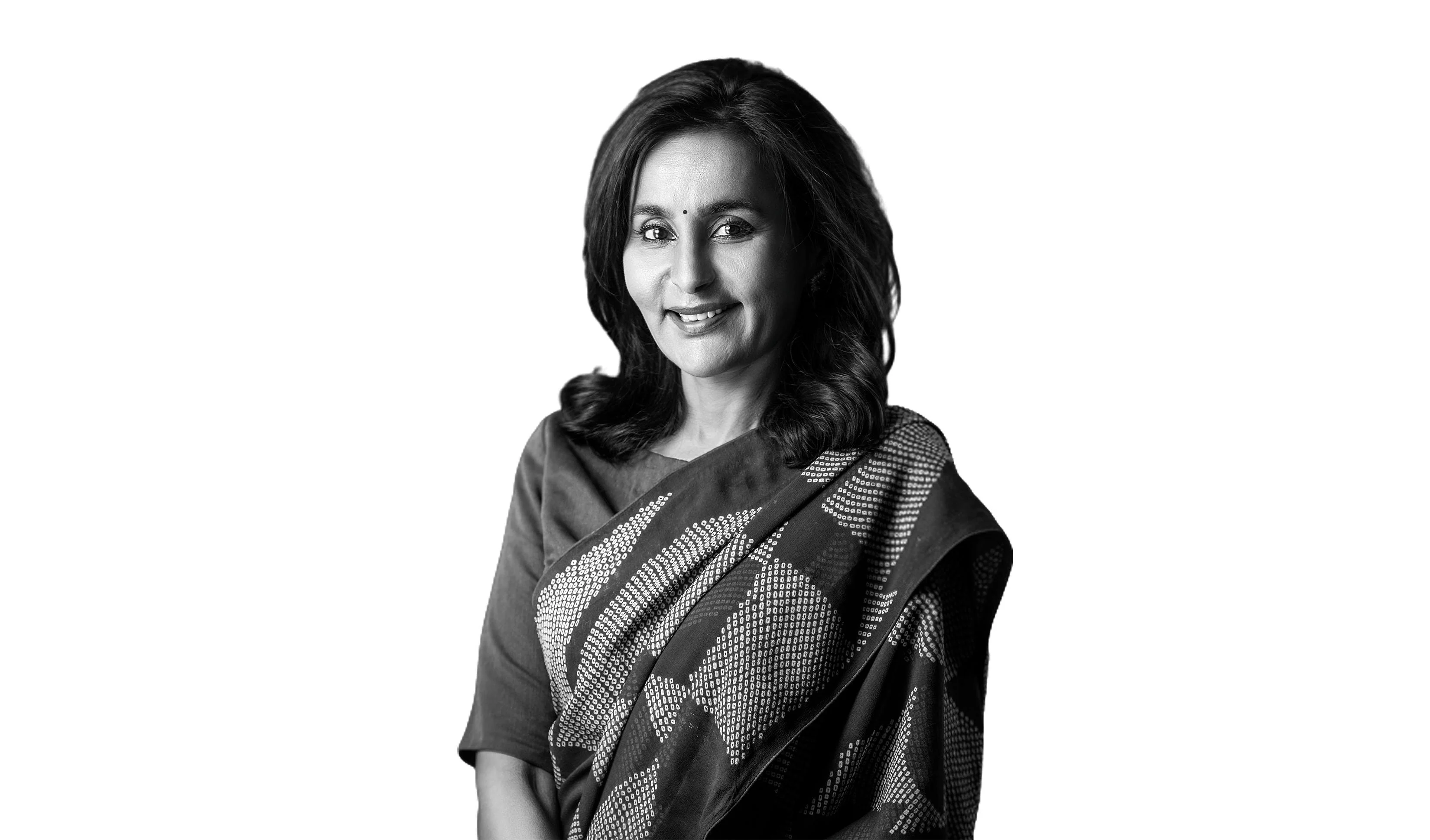Healthcare's missing women: Why female leaders remain rare on medicine's road less travelled
Despite leading different segments, women’s representation in healthcare is few and far between.

This story belongs to the Fortune India Magazine April 2025 issue.
IN 1978, Kiran Mazumdar-Shaw began her entrepreneurial journey with three employees in a rented shed in Koramangala, suburban Bengaluru, to build what is almost half a century later, India’s leading biotechnology firm Biocon Ltd with annual revenues worth ₹15,621 crore, 16,300 employees and a presence in over 100 countries, including the U.S., Europe and emerging markets.
In 1989, when Suneeta Reddy started working with Apollo Hospitals, the corporate hospital group founded by her father Dr Prathap C. Reddy was a fledgeling enterprise, which had started off as a 150-bed hospital in Chennai six years ago. Today, Apollo is India’s largest private healthcare provider with cumulative bed strength of over 10,000 across 73 hospitals and runs over 6,000 pharmacies, 2,500 clinics and diagnostic centres and over 500 telemedicine centres.
Kiran Mazumdar-Shaw is the founder and executive chairperson of Biocon Ltd; Suneeta Reddy the managing director of Apollo Hospitals. Both are shining examples of women in leadership positions in India’s healthcare sector.
Dozens of women leaders such as Shaw and Reddy are spearheading Indian healthcare enterprises across segments such as pharmaceuticals and biotech manufacturing, hospitals, diagnostic services, healthtech startups, etc. However, there is a glaring gender gap if one takes a closer look at the workforce of 9.3 million employed in various capacities — leadership to unskilled jobs — across private and public sectors in the country’s healthcare ecosystem. Women are well represented in some areas, but not everywhere. Undoubtedly, India needs more women leaders and professionals to make the country’s healthcare sector more gender balanced.
Success is gender neutral
Apollo Hospitals registered a consolidated revenue of over ₹22,000 crore and Ebitda of over ₹3,000 crore in FY24. In the past seven years, the company delivered a revenue CAGR of 20%, profit-after-tax CAGR of 33%, and saw its enterprise value grow at a CAGR of 35% with a 70% reduction in net debt. Suneeta Reddy says Apollo will add 3,512 beds across 11 locations in the next three to four years (beginning FY26). “By leveraging cutting-edge technology, digital transformation, and patient-centric innovation, Apollo Hospitals is setting benchmarks in healthcare delivery,” she says.
“As I reflect on Apollo’s progress and my own evolution, the biggest insight is that the only limitation to what we can do is set by ourselves. Women can do anything that they determine to do,” says Reddy. “I started with hospitality, moved into broking and financial services, and then got into healthcare — and learnt many new things along the way. The common denominator was conviction in the work we were doing, and belief in my own capability to get the job done. And that’s the only belief that women need.” But the path to success is not smooth. Women leaders, especially, have the perception hurdle to overcome as well.
More Stories from this Issue
“In the early years of my career, I often faced external doubts about my long-term commitment and leadership potential. Many perceived that because I was straightforward and spoke plainly (unusual for a woman!), I would be aggressive. People also assumed I will sell my business when I have a family. Instead of letting these perceptions hold me back I chose to focus on results — building credibility through hard work, a clear strategy, and strong leadership,” says Ameera Shah, promoter and executive chairperson, Metropolis Healthcare. She adds that what helped her overcome these barriers are resilience, adaptability, and a focus on delivering results. Metropolis has made gender diversity a core priority. “Today, our workforce has a gender (male-female) ratio of 57:43, and we aim to achieve a 50:50 balance by 2028. Currently, 25% of our leadership team comprises women, and we plan to increase this to 35%.”
Glaring gaps
In a first-of-its-kind study conducted about two years ago, philanthropy foundation Dasra found that despite a significant female presence at entry levels in the Indian healthcare sector, women are underrepresented in leadership roles across sub-sectors, highlighting a ‘leaky bucket’ phenomenon. In India, although women account for 29% of doctors and 80% of nursing staff, they hold merely 18% of leadership positions, earning 34% less than their male counterparts, according to the Dasra report. In private hospitals, women make up over 50% of the workforce, but hold only 27.5% of leadership positions. In sub-sectors such as pharmaceuticals and biotech, women face low entry and participation rates. They constitute merely 7.5% of leadership roles, with the overall participation limited to 8%. Women also have low representation in roles (sales and operations) with high leadership potential and high representation in roles (human resources, administration, nursing, technicians) with low leadership potential.
Looking at the workforce patterns, the Dasra report said that in sub-sectors with low workforce concentration — where the Top 10 organisations employ 4-15% of the workforce, any initiative to achieve widespread impact, commonly known as the lighthouse effect, may face challenges due to workforce dispersion. Conversely, in high workforce concentration such as pharma and biotech, there’s an opportunity to reach a majority of the workforce, allowing for industry-wide transformations.
(INR CR)
Yamini Atmavilas, who leads Dasra’s work on women in leadership roles, says in India organisations must take greater responsibility in embedding fundamental enablers — infrastructure, policies, and practices — to support the advancement of women into leadership positions. She cites pharma major Dr. Reddy’s Laboratories, hospital chains Hyderabad-based Fernandez Hospital and KIMS Hospital, and Biocon subsidiary Syngene International as examples of firms that have taken conscious efforts to maintain the gender balance.
Prioritising gender
India’s Business Responsibility and Sustainability Reporting (BRSR) framework requires companies to disclose their environmental, social, and governance (ESG) performance. In its BRSR report, Dr. Reddy’s Laboratories has set clear, measurable goals to advance gender parity and promote women in leadership positions. The company is committed to achieving 50% gender parity across the organisation by 2035, and ensuring that 35% of its senior leadership positions are held by women by 2030. To reach these targets, it has implemented strategies such as hiring 50-60% women in entry-level roles, specifically those from economically disadvantaged backgrounds and chemical engineers from top institutions such as IITs and NITs. Additionally, it is building leadership pipelines by identifying talent from other industries and working to increase women representation in specific areas. Flexible working options include policies such as 26 weeks of paid maternity leave and miscarriage leave of up to six weeks. Then there are targeted programmes such as ‘License to Lead’, a six-month mentoring initiative for emerging women leaders, and ‘Chrysalis’, which has trained high-potential women employees for senior roles since its launch in 2020.
Among others, Fernandez Hospital is taking a personalised approach to help women gain confidence and skills needed for various leadership roles. The hospital has introduced acting positions for women, allowing them to take on leadership responsibilities for three to six months, before being considered for full-time roles. The initiative is designed to create a clear pathway for women to progress, along with leadership training for both clinical and non-clinical staff. Fernandez also provides flexible work options for women with family commitments, ensuring they can balance professional responsibilities without sacrificing career growth. Similarly, KIMS Hospital focusses on affirmative action policies and leadership development for women. The hospital has trained nurses for managerial roles, offering them opportunities to take on leadership tasks.
Bengaluru-based Syngene International, on the other hand, ensures women’s representation is tracked in ESG reports, making gender diversity an integral part of their corporate responsibility. Pharma major Lupin, which currently has a gender diversity of 9%, looks to increase it to 15% by 2030. Some of the company’s initiatives include The Lupin Women’s Network, a key employee resource group which provides a platform to women employees across functions, levels and locations to unleash their true potential, and ‘Returnity’, which helps new mothers transition back to mainstream work-life after maternity, with tailor-made workshops. A well-trained set of buddies handhold them to assimilate them back into the workforce. “We aim to create a workplace where diversity is celebrated, equity pursued, and inclusion is the norm,” says Vinita Gupta, CEO, Lupin Ltd.
“We employ about 7,000 people, of which 18.5% are women, including in our factories,” says Nandini Piramal, chairperson, Piramal Pharma.
But while certain healthcare organisations are taking positive steps, the journey is far from complete, says Atmavilas of Dasra. “Companies must go beyond isolated initiatives and create comprehensive, sustainable frameworks that enable women to succeed and thrive in leadership positions. This requires continuous investment in policies, mentorship, flexible work practices, and a shift in organisational culture that recognises and values women in leadership roles.”
Apollo’s Suneeta Reddy believes leadership is never a solo journey. “The people around me — my incredible team, my family, and my father’s vision have always driven me to serve and deliver with an unyielding commitment to excellence,” she says. Reddy also believes in the collective power of women. “By creating a more equitable and inclusive work environment, women can accelerate their careers and lead with confidence. Having a growth mindset and pursuing one’s vision with determination can go a long way in integrating work-life aspirations. Women can succeed more if they are courageous to ask for opportunities to lead and contribute. Women have huge influence capital and the responsibility to create more leaders for tomorrow,” she adds.







